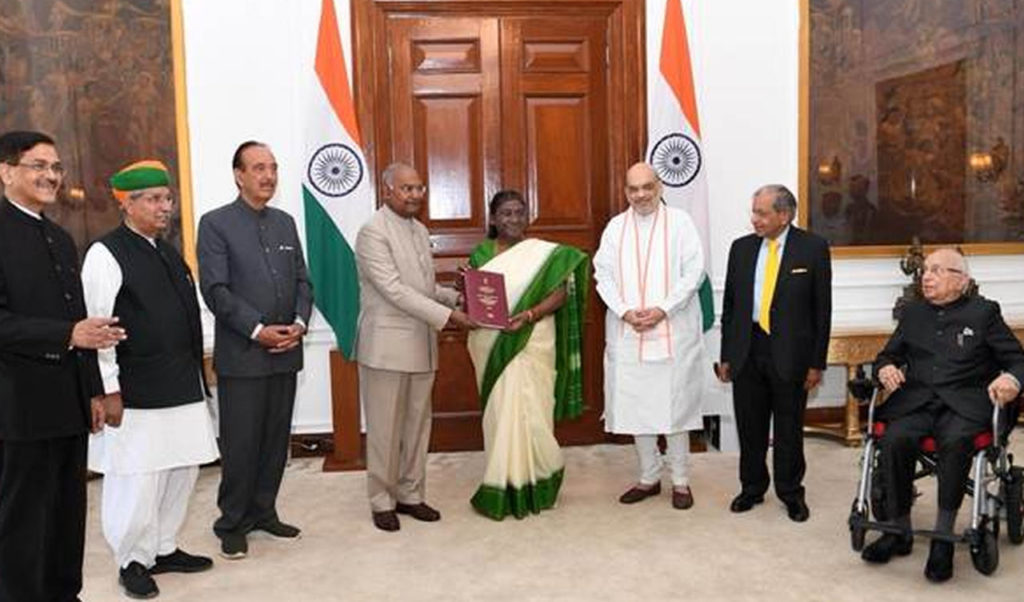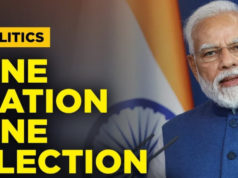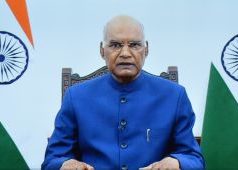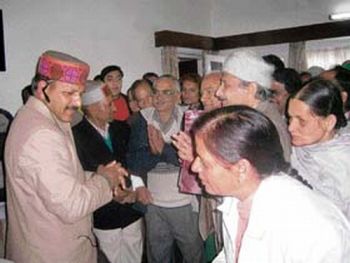Comprehensive Report Emphasizes Benefits of ‘One Nation, One Election’ Concept
In a significant development aimed at reforming India’s electoral process, a high-level committee chaired by former President Ram Nath Kovind has recommended the implementation of simultaneous polls for the Lok Sabha, state assemblies, and local bodies across the country. The committee’s report, submitted on Thursday after extensive deliberations, outlines a roadmap for conducting synchronized elections and highlights the potential advantages of adopting this approach.
One of the key recommendations put forth by the Kovind panel is the phased implementation of simultaneous polls, beginning with elections to the Lok Sabha and state assemblies, followed by local body polls within 100 days. This approach, the committee asserts, would streamline the electoral calendar and ensure greater efficiency in governance.
In cases of a hung House or a no-confidence motion leading to the dissolution of a legislative body, the panel suggests the possibility of conducting fresh polls for the remainder of the five-year term, thus maintaining political stability and continuity.
The committee’s proposal also includes provisions for aligning the tenure of state assemblies with the subsequent Lok Sabha elections for the first simultaneous polls. This structural adjustment aims to facilitate smoother transitions and minimize logistical challenges.
Addressing concerns regarding preparedness and logistics, the Kovind panel advocates for advance planning in terms of equipment, manpower, and security forces necessary for conducting simultaneous polls effectively. It emphasizes the role of the Election Commission in coordinating these efforts and proposes the creation of a unified electoral roll and voter ID card system for all levels of elections.
The report underscores the potential benefits of simultaneous polls, including enhanced transparency, inclusivity, and voter confidence. It argues that synchronized elections would not only accelerate the development process but also promote social cohesion and strengthen the foundations of democracy.
Furthermore, the committee contends that ‘one nation, one election’ is aligned with the aspirations of a unified India and would lead to a more cohesive governance architecture. The report suggests that synchronized polls could address economic concerns raised by apex business organizations and economists, who emphasize the adverse impact of asynchronous elections on economic growth and stability.
The comprehensive report, spanning over 18,000 pages, was presented to President Droupadi Murmu at Rashtrapati Bhavan. It reflects the outcome of extensive consultations with various stakeholders, including political parties, legal experts, election officials, business organizations, and economists.
In light of its mandate to explore mechanisms for simultaneous elections while adhering to constitutional principles, the committee’s recommendations are crafted to require minimal amendments to the existing framework. The report signals a significant step towards electoral reform and sets the stage for further deliberations on this critical issue.








